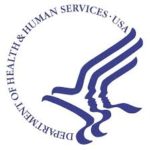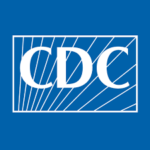The following is the latest health policy news from the federal government for September 22-28. Some of the language used below is taken directly from government documents.
 ASH Advocacy
ASH Advocacy
In a message to members of the House of Representatives, ASH maintained that introducing site-neutral Medicare outpatient payments would jeopardize access to care in rural, inner-city, and other areas that community safety-net hospitals serve. For this reason, the Alliance of Safety-Net Hospitals asked House members either to reject site-neutral payments or to exempt community safety-net hospitals from site-neutral payments for care provided to Medicare patients at hospital-based outpatient departments. Learn more from ASH’s message to House members.
The White House
President Biden has signed H.R. 2544, the Securing the U.S. Organ Procurement and Transplantation Network Act, which provides for awarding multiple grants, contracts, or cooperative agreements to operate the Organ Procurement and Transplantation Network.
Congress
Congressional leaders have not come to agreement on how to avert a federal government shutdown this weekend. While Senate leaders introduced a continuing resolution that would fund the government through November 17, that bill has not passed the Senate, and in the House, Speaker McCarthy has said that chamber will not consider such a measure. House Republicans have not proposed a continuing resolution.
Critical health and human services programs would continue during a federal government shutdown, including Medicare payments and Medicaid funding for the states, although some delays could be possible. Find HHS’s FY 2024 contingency staffing plan here and CMS’s plan here.
Without congressional action before October 1, $8 billion in reductions to state Medicaid disproportionate share (Medicaid DSH) allotments will begin to go into effect and it will be up to individual states’ Medicaid programs to determine how to apply those reductions.
No Surprises Act
- CMS has directed the certified Independent Dispute Resolution (IDR) entities created by the No Surprises Act to adjudicate fee disputes between payers and providers to resume processing all single and bundled payment disputes submitted on or before August 3, 2023.
- Following litigation that overturned some of the fees charged under the No Surprises Act’s IDR process, CMS, the Department of the Treasury, and the Department of Labor have proposed a regulation changing selected fees for participation in that process, including fees per party per dispute (from the current $50 to $150), fees for batched determinations, fees for IDR entities, and others. The fees would take effect for disputes initiated on or after the later of the effective date of this rule or January 1, 2024. Learn more from this announcement and explanation of the proposed changes in fees and from the proposed regulation. Stakeholder comments are due by October 26.
 Centers for Medicare & Medicaid Services
Centers for Medicare & Medicaid Services
- Last month CMS identified a systems error in how 30 states were processing auto-renewals – often referred to as ex parte renewals – of Medicaid eligibility as they reviewed the eligibility of their Medicaid and CHIP beneficiaries. The agency directed those states to restore the eligibility of everyone whose eligibility had been terminated through that flawed process. As a result, approximately 500,000 people have had their Medicaid and CHIP eligibility restored. Learn more about this situation from this CMS news release.
- CMS has published an October update of ICD-10 and other coding revisions to National Coverage Determinations (NCDs). Find the CMS bulletin here.
- CMS has issued a statement on the status of blood tests for organ transplant rejection. In the statement, the agency confirms that neither it nor the Medicare Administrative Contractors (MACs) have made changes that affect patients’ ability to have blood tests used to monitor for organ transplantation rejection covered when ordered by their physicians under medically appropriate circumstances. Patients with transplanted hearts, lungs, or kidneys who meet the coverage criteria for these tests, as laid out in the local coverage determination, can continue to take these tests in place of a more invasive biopsy. Learn more from the CMS statement.
- CMS has updated its fact sheet on checking Medicare eligibility. Find the updated fact sheet here.
- CMS announced that average premiums, benefits, and plan choices for Medicare Advantage and the Medicare Part D prescription drug program will remain stable in 2024. The agency projects that enrollment in Medicare Advantage will increase from 31.6 million people in 2023 to 33.8 million in 2024 – nearly 50 percent of all people enrolled in Medicare. Learn more from this CMS news release.
- CMS has announced the calendar year 2024 participants in its Medicare Advantage Value-Based Insurance Design (VBID) Model. Sixty-nine plans in 49 states and the District of Columbia will participate in the program in 2024, up from 52 plans in 2023; the plans are projected to serve 12.4 million Medicare Advantage participants, up from 9.2 million in 2023; and 13 of the 69 plans will offer a hospice benefit component. Learn more about the Medicare Advantage VBID Model and find a list of participating plans for 2024 from this CMS news release.
- CMS has published a fact sheet that provides an overview of the Merit-based Incentive Payment System (MIPS) Data Validation and Audit process to be conducted in 2023 for performance year 2022. To find the fact sheet go here, scroll down to “Full Resource Library,” and click “MIPS Data Validation and Audit (DVA) Factsheet PY 2022” for a direct download of the fact sheet.
- CMS has published an alternative payment model performance pathway toolkit for performance year 2023. The toolkit includes a 2023 APM Performance Pathway Toolkit table of contents, 2023 APM Performance Pathway for MIPS APM Participants Fact Sheet, 2023 APM Performance Pathway Quick Start Guide, 2023 APM Performance Pathway Infographic, and 2023 APM Performance Pathway Scoring Guide. To find the fact sheet go here, scroll down to “Full Resource Library,” and click “PY 2023 APM Performance Pathway (APP) Toolkit” for a direct download of the zipped file.
- CMS is creating a technical expert panel to help guide the development, evaluation, and maintenance of post-acute-care and hospice quality reporting program measurement sets. Among the capabilities the panel seeks are clinical expertise in post-acute-care settings, measure development specialists, quality improvement specialists, and others. Learn more about the panel, its work, the qualities sought among participants, how it will operate, the time commitment, and the process for submitting nominations from this CMS notice. Nominations are due by October 11.
 Department of Health and Human Services
Department of Health and Human Services
- HHS is awarding more than $103 million to support and expand access to maternal health, forming a new task force to address maternal mental health conditions and co-occurring substance use disorders, and launching a national public education campaign to provide information about and combat stigmatization associated with maternal mental health conditions and co-occurring substance use disorders. The grants will support the expansion and diversification of the perinatal workforce, increasing access to maternal health services, support for parents and families, and maternal health research. Learn more about the funding and how it will used from this HHS news release.
- HHS and its Substance Abuse and Mental Health Services Administration (SAMHSA), the Health Resources and Services Administration (HRSA), and the Administration for Children and Families have awarded $206 million in grants toward youth mental health. These awards seek to expand access to mental health services for students in schools, bolster the behavioral health workforce, and improve access to mental health prevention and treatment for children and youth in communities across the country. Learn more about the new funding and find links to additional news releases from the individual agencies, which include more information about the programs the grants will support and links to lists of grant recipients. from this HHS news release.
- HHS and SAMHSA have awarded $127.7 million to expand Certified Community Behavioral Health Clinics (CCBHCs) across the country. The awards will work with provisions of the Bipartisan Safer Communities Act to expand access to the CCBHC model across the country. Under the act, HHS will enable up to 10 additional states to create state CCBHC programs under Medicaid every two years starting in 2024. Learn more about the grants and the services they will support and find a list of grant recipients from this HHS news release.
- HHS and SAMHSA have awarded $232.2 million in grants for suicide prevention and behavioral health care for at-risk communities, including more than $200 million in new funding for states, territories, and Tribal nations and organizations, to build local capacity for the 988 Suicide & Crisis Lifeline and related crisis services. Learn more about the specific services the new funding will support and find links to lists of grant recipients from this HHS news release.
- HHS’s Office of Minority Health has awarded more than $13 million in grants to 11 organizations for its Healthy Families Community-Based Perinatal Health Initiative to develop innovative models for integrating community-based maternal support services into perinatal systems of care. Learn more about the work the grants will support and find a list of grant recipients from this HHS news release.
- In the wake of individuals being denied insurance coverage of new COVID-19 vaccines, HHS Secretary Xavier Becerra has written to health insurance companies to remind them that most health plans are required to cover those vaccines without member cost-sharing. See his letter here.
- The Families First Coronavirus Response Act authorized additional federal medical assistance percentage rates (FMAP) – federal Medicaid matching funds – to states that met certain requirements during the COVID-19 public health emergency. HHS’s Office of the Inspector General (OIG) audited the compliance of four states – New York, Florida, Texas, and Minnesota – and found that all of those states terminated Medicaid enrollees’ coverage for unallowable or potentially unallowable reasons and violated the act’s requirements in other ways. The OIG recommends that CMS work with those states to determine how much of the additional FMAP money they should return to the federal government as a result of their actions and CMS has agreed with this recommendation and indicated that it will pursue this matter with the states. Learn more from the OIG report “Four States Reviewed Received Increased Medicaid COVID-19 Funding Even Though They Terminated Some Enrollees’ Coverage for Unallowable or Potentially Unallowable Reasons” and from this summary of the report.
- HHS’s Advanced Research Projects Agency for Health (ARPA-H) has announced the launch of ARPANET-H, a nationwide health innovation network anchored by three ARPA-H regional hubs – one in Dallas, a second in Cambridge, and a third, to be chosen later, somewhere in the Washington, DC area. The hubs will be mission-focused, regional centers with a growing network of spokes around the country representing the diversity of people, settings, and capabilities that encompass the American health ecosystem. Together, the hubs and their spokes will collaborate with ARPA-H to pursue breakthroughs in science and medicine that improve health outcomes. Learn more from this ARPA-H announcement.
- HHS’s Health Resources and Services Administration (HRSA) recently held a national telehealth conference to examine the importance of integrating telehealth into standard care. The individual sessions from that conference are now available for viewing. Find them here.
HHS Newsletters
- MLN Connects (CMS) – September 28
- AHRQ News Now – September 26
- HRSA eNews – September 21
 Centers for Disease Control and Prevention
Centers for Disease Control and Prevention
- The CDC has recommended the first respiratory syncytial virus (RSV) vaccine for pregnant people to protect their newborns from severe RSV illness, which is the leading cause of hospitalization for U.S. infants. The new vaccine has been shown to reduce the risk of RSV hospitalization for babies by 57 percent in the first six months after birth, so the CDC recommends seasonal administration of one dose of RSV vaccine for pregnant people during weeks 32 through 36 of pregnancy. Learn more from this CDC news release.
- The CDC has awarded $262 million in grants to support a national network for outbreak response and disease modeling. The awards will support state and local decision-makers in developing and implementing new tools to detect, respond to, and mitigate public health emergencies more effectively. The program will support building and scaling needed capabilities best suited for their respective jurisdictions based on the best available information. Learn more about the program and the participants in the national network from this CDC news release.
National Institutes of Health
- The NIH has launched a community-led program to advance health equity by funding research to study ways to address the underlying structural factors within communities that affect health, such as access to safe spaces, healthy food, employment opportunities, transportation, and quality health care. The agency has awarded approximately $171 million in grants to 26 community organizations and a coordinating center for five years of research through which it will seek to pursue sustainable solutions that promote health equity and create lasting change in communities. Learn more about the NIH program, the grants, and the research to be funded from this NIH news release.
- The NIH has designated people with disabilities as a population with health disparities for research supported by the agency. NIH also has issued a notice of funding opportunity calling for research applications focused on novel and innovative approaches and interventions that address the intersecting impact of disability, race and ethnicity, and socioeconomic status on health care access and health outcomes. Learn more from this NIH news release.
Medicaid and CHIP Payment and Access Commission (MACPAC)
MACPAC has published an issue brief addressing how states can make better use of ex parte renewals of Medicaid eligibility. Federal rules have long required that states first attempt Medicaid eligibility renewal using reliable information available to them before requesting information from beneficiaries – a process known as ex parte renewal. Learn more from the MACPAC issue brief “Increasing the Rate of Ex Parte Renewals.”
Government Accountability Office (GAO)
- HHS’s Health Resources and Services Administration (HRSA) has reviewed COVID-19 Provider Relief Fund payments to hospitals and health systems and how they were used and has concluded that it should seek to recover $2.6 billion of that money. In a new report, the GAO examines HRSA’s recovery efforts. Find the report here and a summary of the report here.
- In a new report, the GAO urges CMS to work more closely with states and make better use of state audits of Medicaid payment errors and fraud. Learn more from the GAO report “Medicaid Program Integrity: Opportunities Exist for CMS to Strengthen Use of State Auditor Findings and Collaboration” and a summary of that report.
 Stakeholder Events
Stakeholder Events
MedPAC Commissioners Meeting – October 5-6
MedPAC will hold its next public meeting on Thursday, October 5 and Friday, October 6. Information about the agenda and the location of the meeting and how to participate virtually is not yet available but when it is it will be posted here.
CMS – Medicaid and CHIP – October 25 and December 6
HHS and CMS are holding a series of monthly webinars on Medicaid and CHIP renewals to educate partners. Topic covered vary each month. Go here to register for upcoming webinars.
- October 25 at 12:00 pm (eastern)
- December 6 at 12:00 pm (eastern)
Recordings, transcripts, and slides from past webinars can be found on the CMS National Stakeholders Calls web page.
CMS – Patient-Focused Listening Sessions on Medicare Drug Price Negotiations – October 30-November 15
CMS will host a series of patient-focused listening sessions this fall as part of the Medicare Drug Price Negotiation Program. The virtual public listening sessions will provide an opportunity for patients, beneficiaries, caregivers, consumer and patient organizations, and other interested parties to share input relevant to drugs selected for the first round of negotiations. Learn more about the listening sessions, the schedule for these sessions, the individual drugs to be discussed at each, and how to participate from the CMS drug listening session web page.
CMS – Burden Reduction Conference – November 15
CMS will convene leadership from the federal government, health provider organizations, and the patient advocacy community to focus on opportunities across the health care enterprise to reduce administrative burden, strengthen access to quality care, and make it easier for clinicians to provide that care during a day-long virtual conference it will hold on Wednesday, November 15 beginning at 9:00 (eastern). Go here to learn more about the conference and find a link for registration.
CMS – Town Hall Meeting on FY 2025 Applications for New Medical Services and Technologies Add-On Payments – December 13-14
CMS will hold a virtual town hall meeting on Wednesday, December 13 and Thursday, December 14 during which organizations representing hospitals, physicians, manufacturers, and other interested parties may present comments, recommendations, and data to CMS’s clinical staff about whether individual services or technologies represents a substantial clinical improvement. The meeting will include a discussion of the substantial clinical improvement criteria for the FY 2025 applications for new technology add-on payments. Learn more about the meeting, why it is being held, what it will address, and how to participate from this CMS notice.

 Centers for Medicare & Medicaid Services
Centers for Medicare & Medicaid Services Stakeholder Events
Stakeholder Events